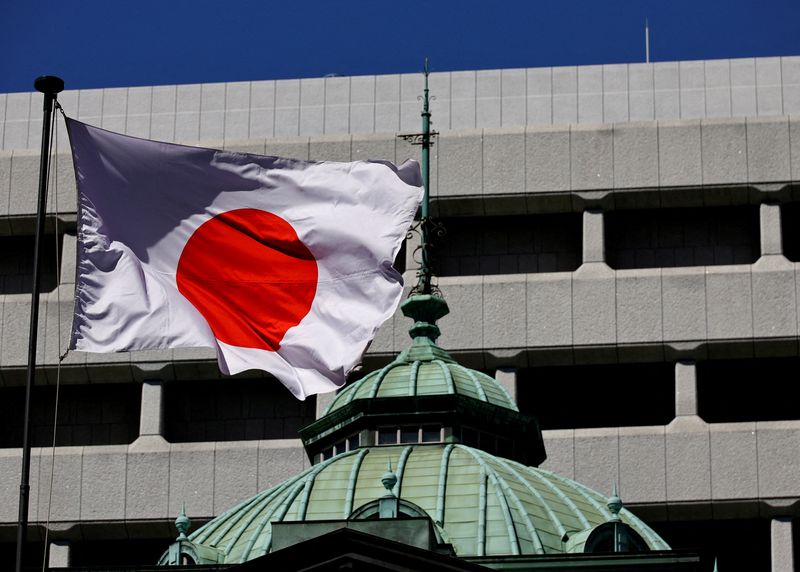A look at the day ahead in European and global markets from Rae Wee
Traders in Europe will be waking up to a nervy currency market on Friday - no doubt caused by the yen, as volatile moves in the Japanese currency across the board puzzled investors.
The yen swung between gains and losses during the early Asian session, sometimes in a matter of minutes, though it's hard to say if Tokyo was pulling the strings on this one. Fear certainly had a part to play, though.
The Nikkei newspaper reported that the Bank of Japan (BOJ) conducted rate checks with banks on the euro against the yen on Friday, and traders were still reeling from the aftermath of Thursday's suspected yen-buying intervention.
Authorities were cagey about it as usual, but if anything, Tokyo has clearly shown the market that it knows when to best time an intervention.
Thursday's spike in the yen came straight after data showed U.S. consumer inflation cooled more than expected in June, which initially led currency analysts and traders to think that the surge was probably triggered by options-related activity.
Yet, the scale and speed of the move eventually put markets on alert to the possibility of a Japanese intervention and local media similarly attributed it as such.
Given that effects of any intervention have proven short-lived in recent history, Thursday's move probably provided the best bang for Tokyo's buck.
Authorities' absence from the currency market after the April-May intervention bout had at some point raised questions about their restraint as the yen continued to plumb fresh 38-year lows. But after Thursday's developments, traders are once again on the edge of their seats.
How timely, too, that Japan has a national holiday on Monday, which would make for thin liquidity and perhaps another opportune time for Tokyo to strike.
The chatter over the yen provided a bit of a break to the main story, which remained on rates, where a cut from the Federal Reserve in September is almost fully priced in.
Even Fed Chair Jerome Powell in his two days of testimony before Congress this week appeared to edge the door open to an easing cycle beginning in September, saying that the U.S. economy was "no longer overheated".
Over in U.S. politics, things aren't looking great for President Joe Biden, who mixed up the names of Vice President Kamala Harris and his Republican rival Donald Trump, just hours after he mistakenly referred to Ukrainian President Volodymyr Zelenskiy as Russian President Vladimir Putin before correcting himself at the NATO summit in Washington.
Elsewhere, customs data showed on Friday that China's exports grew more than expected in June, though imports dropped 2.3%, as the world's second-largest economy continues to grapple with a bumpy recovery.
Key developments that could influence markets on Friday:

- Germany wholesale price index (June)
- France CPI (EU Norm) final (June)